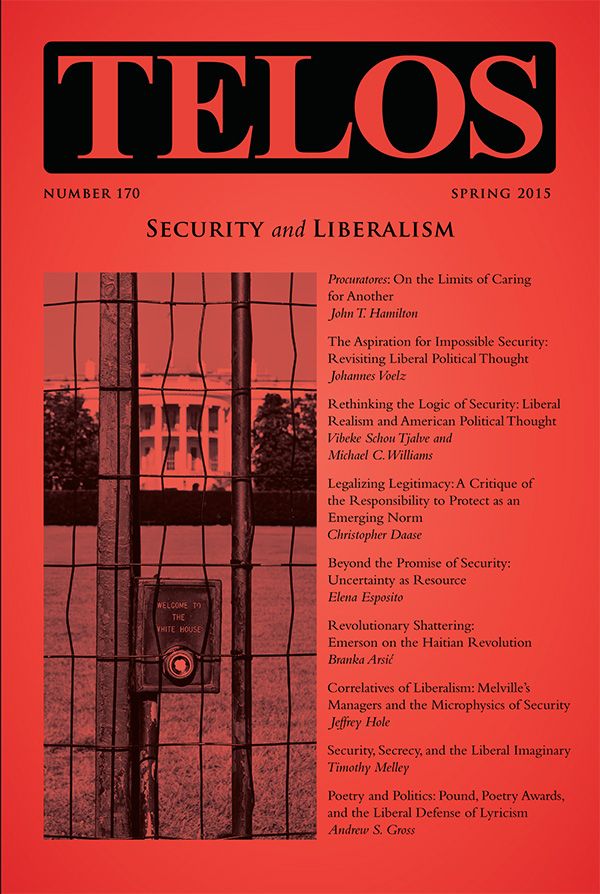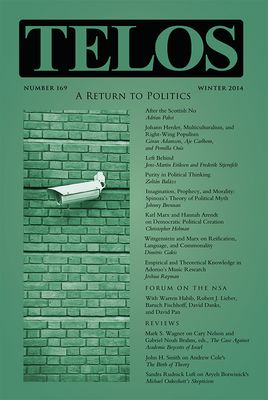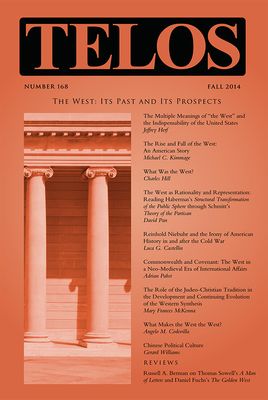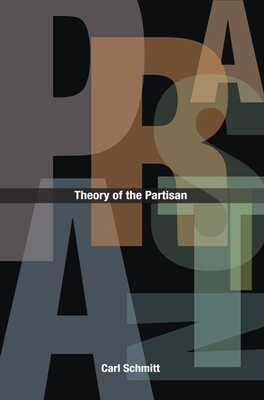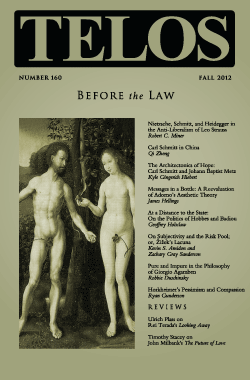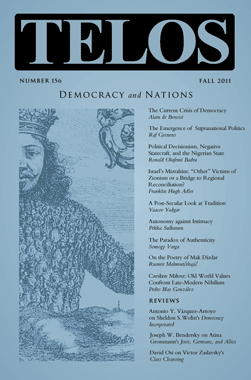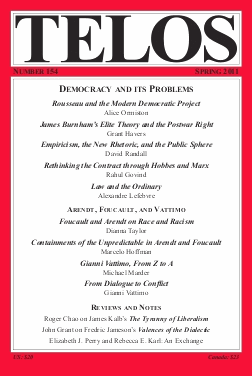Telos 170 (Spring 2015): Security and Liberalism
Security and Liberalism
Edited by Johannes Voelz
The articles collected in this issue of Telos take up the debate of the relation between liberalism and security from the perspectives of different disciplines, including literary studies, intellectual history, political theory, international relations, and sociology. The purpose of this interdisciplinary exchange is to provide a view of the scope of liberalism and security that extends beyond the current narrow debate of surveillance and the war on terror. To make sense of security, it is necessary to place it in the larger context of modern attempts to manage the contingency that is itself the defining characteristic of modernity. Contingency also structures liberalism’s attempts to create and control the conditions of liberty. Security and liberalism are thus issues that surpass limited understandings of political theory and critique by addressing the project of making possible a life form conceptualized against the horizon of an open future.
Introduction
Russell A. Berman and Johannes Voelz
Procuratores: On the Limits of Caring for Another
John T. Hamilton
The Aspiration for Impossible Security: Revisiting Liberal Political Thought
Johannes Voelz
Rethinking the Logic of Security: Liberal Realism and the Recovery of American Political Thought
Vibeke Schou Tjalve and Michael C. Williams
Legalizing Legitimacy: A Critique of the Responsibility to Protect as an Emerging Norm
Christopher Daase
Beyond the Promise of Security: Uncertainty as Resource
Elena Esposito
Revolutionary Shattering: Emerson on the Haitian Revolution
Branka Arsić
Correlatives of Liberalism: Melville's Managers and the Microphysics of Security
Jeffrey Hole
Security, Secrecy, and the Liberal Imaginary
Timothy Melley
Poetry and Politics: Ezra Pound, Poetry Awards, and the Liberal Defense of Lyricism
Andrew S. Gross
